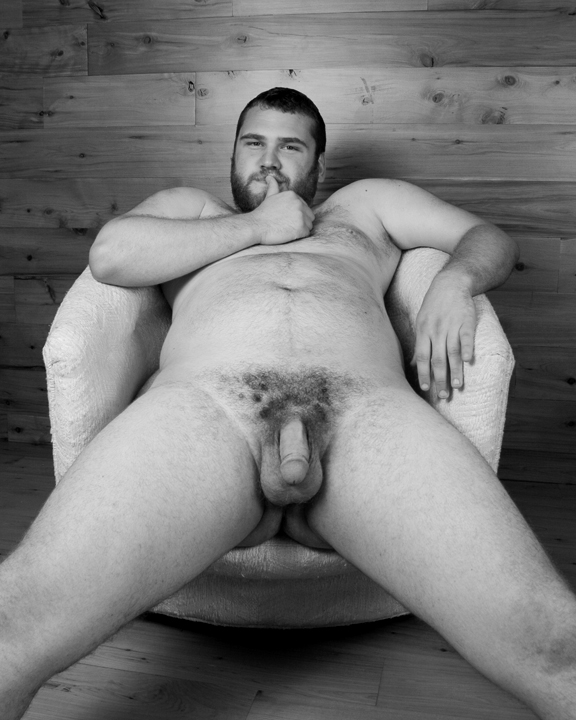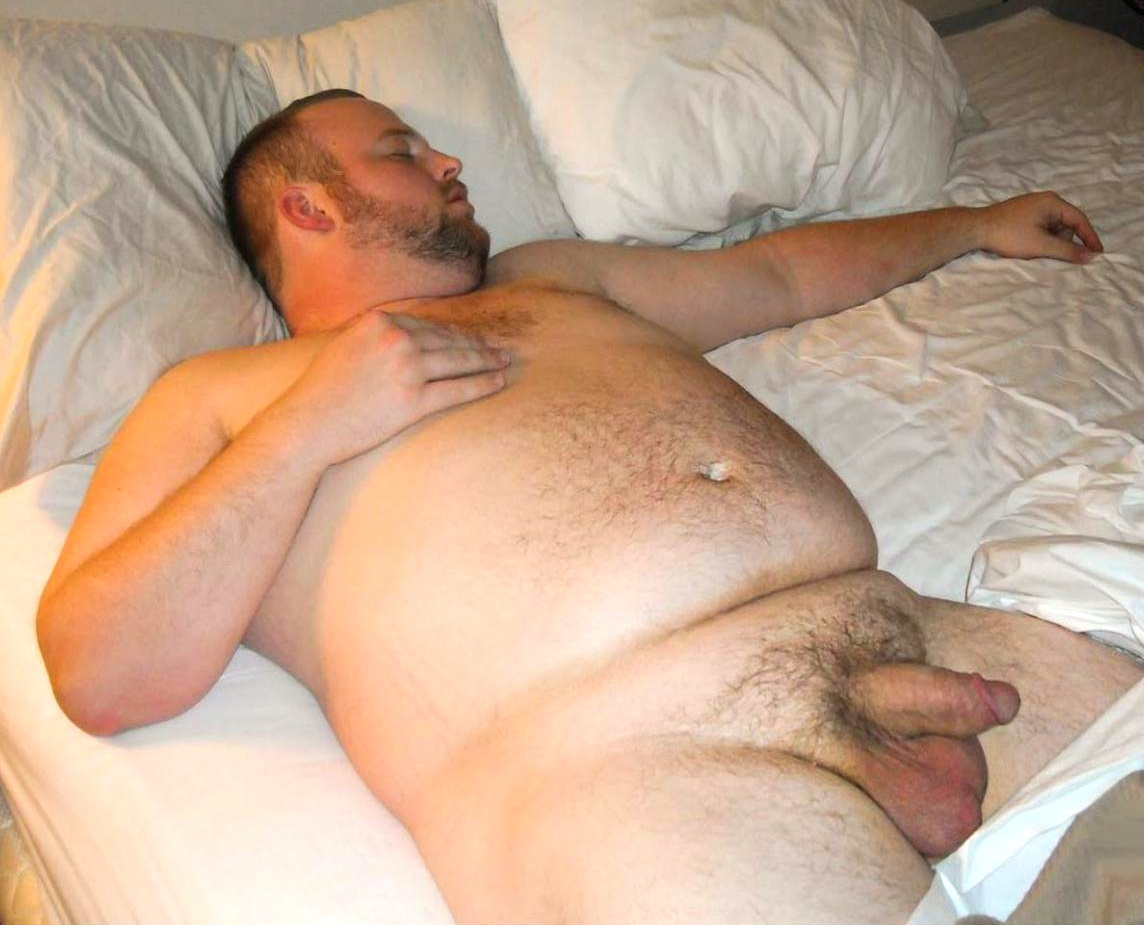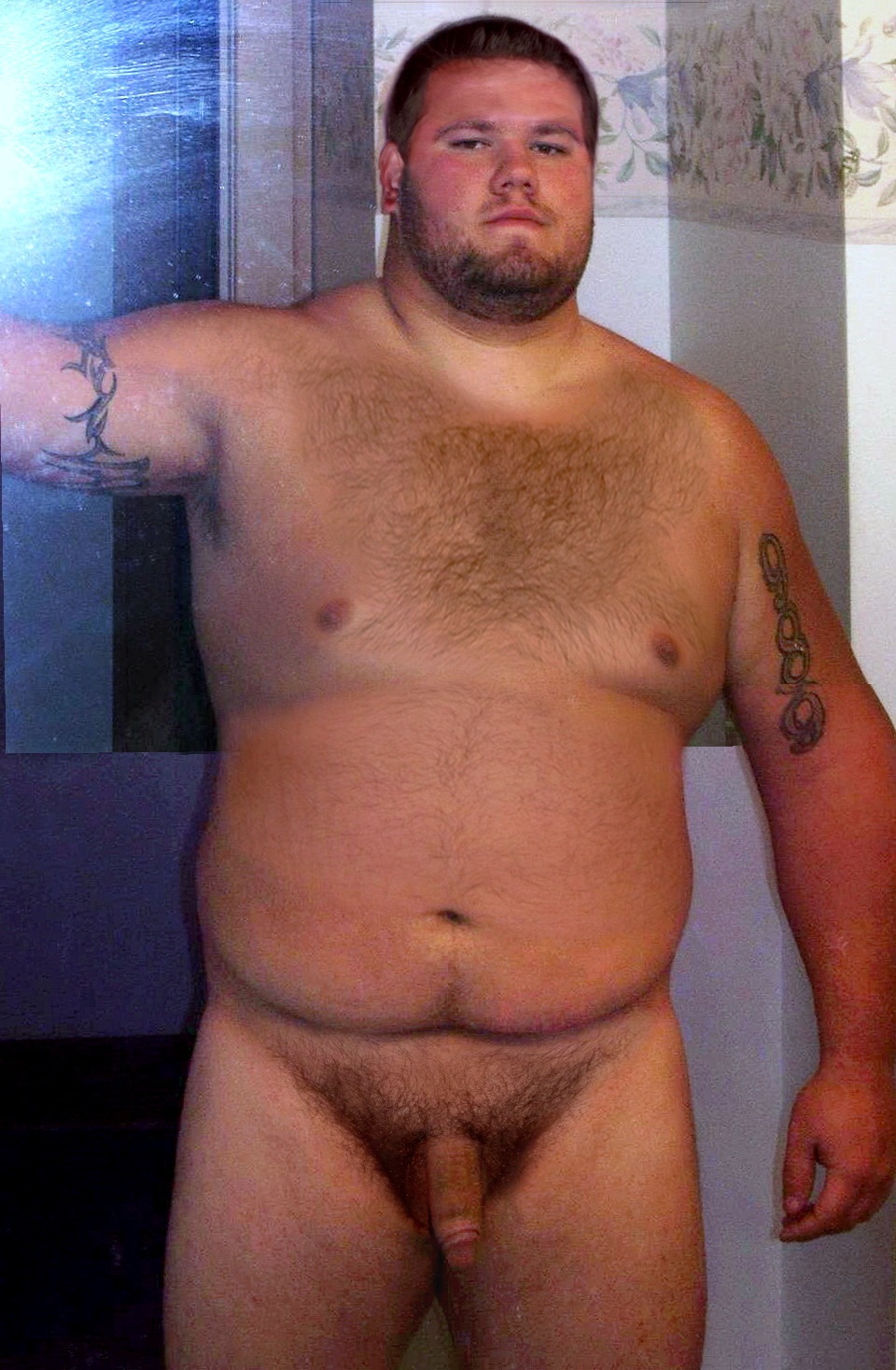:haha: :haha: :haha: :haha:
Posts made by leatherbear
-
RE: Missing Person Etiquetteposted in Jokes & Funny Stuff
:hehe: Not politically correct but comedy seldom is PC. :hehe:
-
Gay Travel 2013: 8 Destinations For LGBT Travelers To Visit Or Avoidposted in Chit Chat

Unfortunate news for Detroit residents: Michigan's metropolis gets rated the "most dangerous U.S. city to visit for gay travelers" in a new LGBT luxury travel survey.
Instead, gay travelers would be considerably better served by visiting Paris, which is called the "best destination for singles," or Istanbul, the "best destination for gays and their girlfriends," by ALT (Alternative Luxury Travel) By Bruvion, a new company catering to LGBT travel needs.
The gay-owned and operated company affords clients "an insight that they won't find" at other travel outlets, according to co-founder Jason Couvillion.
Take a look at more information on ALT By Bruvion here. hXXp://travelalt.com/
Take a look at ALT’s team's pics for 8 places LGBT travelers should avoid or to visit in 2013:
hXXp://www.huffingtonpost.com/2012/12/03/gay-travel-lgbt-destinations-2013_n_2231372.html?utm_hp_ref=gay-voices
-
RE: Frank Mugisha, Ugandan Gay Activist:posted in LGBT News
Uganda's Anti-Gay Bill Won't Contain Death Penalty: Report
KAMPALA, Uganda – The Ugandan lawmaker who originally authored an anti-gay bill proposing death for some homosexual acts said Friday that a new version of the proposed legislation doesn't contain the death penalty.
Parliamentarian David Bahati said the bill, which is expected to be voted on next month, had "moved away from the death penalty after considering all the issues that have been raised."
"There is no death penalty," he told The Associated Press.
Bahati said the bill now focuses on protecting children from gay pornography, banning gay marriage, counseling gays, as well as punishing those who promote gay culture. Jail terms are prescribed for various offenses, he said, offering no details. The most recent version of the bill hasn't been publicly released.
In 2009, when Bahati first introduced the bill, he charged that homosexuals threatened family values in Uganda and that gays from the West were recruiting poor Ugandan children into gay lifestyles with promises of money and a better life. He said a tough new law was needed because a colonial-era law against sodomy was not strong enough.
The bill, popular among many in Uganda but condemned abroad, has been under scrutiny by a committee whose members now say they are ready to put it forward for a vote. One of the members, Krispus Ayena, said Friday that some parliamentarians spoke strongly against certain provisions in the bill as well as the death penalty itself.
"There was a dissenting voice in the committee," Ayena said. "They argued very forcefully that we should not do a thing like that: to regulate what goes on in bedrooms. First of all, is it practicable to regulate that? And there are those who say this is very oppressive."
The bill's original wording proposed the death penalty for cases where HIV-infected homosexuals had sex, where gay people had sex with minors or the disabled, and where gays were discovered having sex for the second time. Bahati said at the time that these offenses amounted to what he called "aggravated homosexuality."
The speaker of Uganda's parliament recently said the bill would be passed before Christmas, renewing fears among activists who want it jettisoned. The bill has been condemned by some world leaders, including U.S. President Barack Obama, who has described it as "odious." European countries such as Sweden and Norway have threatened to cut foreign aid to Uganda if the bill becomes law.
More than 445,000 people around the world have joined a campaign urging Citibank and Barclays to publicly condemn the bill. Both Citibank and Barclays have big operations in Uganda. The petition – perhaps mistakenly, according to the latest information from Bahati and Ayena – calls the legislation the "Kill the Gays" bill.
"As world banks and heavy players in Uganda, Citibank and Barclays have a unique responsibility to speak out and help stop this dangerous legislation before it becomes law," said Citibank customer Collin Burton, who launched his campaign on Change.org. "Now, perhaps more than ever before, we need the international business community to step up and lead by the corporate values they tout on their websites. Human lives are counting on it."
Ugandan gay activists, while condemning the bill, point out that it has somehow helped the struggle for equality by pushing a once-taboo subject to the national agenda. This year Ugandan gays held their first pride parade.
-
Frank Mugisha, Ugandan Gay Activist:posted in LGBT News
If Anti-Gay Bill Passes, I'd Be 'Sentenced To Death'
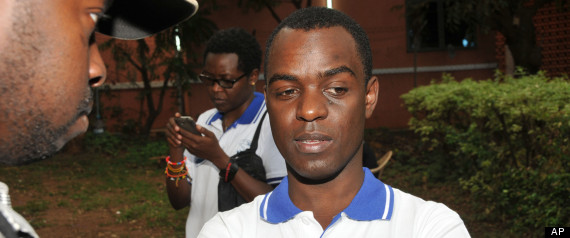
Frank Mugisha
“If the law is passed the way it is right now, I would go to jail, and I would be killed,” said Ugandan gay activist Frank Mugisha, speaking from Kampala last week, regarding the newly-revived bill known as the “kill the gays” bill, which could punish homosexuality, which is already illegal in Uganda, with life in prison or death. “The bill says anyone who commits the offense [and speaks out] against this legislation more than once is a serial offender. And the fact that I’ve already said in Uganda that I’m gay, and that I’m an advocate for LGBT rights, that means I’m promoting homosexuality in Uganda, according to this bill. This legislation, if passed into law, it would automatically make me a serial offender and I would be sentenced to death.” (Listen to the full interview below)
Mugisha disputes those in the government in Uganda, and those among antigay leaders in the U.S., who say the death penalty provision has been removed from the bill.
“This legislation is very draconian and there have been rumors that [the death penalty provision] was removed,” he said in an interview on my SiriusXM OutQ program, about the bill which the speaker of the parliament promised as a Christmas “gift” to the nation and could be voted on any day. “[But] the committee said they have completed their report, and the committee cannot change the legislation. What they can do is, they can only make recommendations in their report. So right now we are talking about legislation that has the death penalty. As of right now Parliament has never received any new or different or water-down legislation. Any recommendations [for revision] can be refused or accepted by parliament.”
Mugisha worries about his safety and that of all LGBT Ugandans, as well as their families and friends if the bill is passed. The law would subject even those who know LGBT people to arrest and imprisonment if they protect LGBT people in any way.
“I’m worried about my own safety but not as much as I’m worried about other LGBT people in Uganda,” he said. “I know people in Uganda who are going to suffer a lot of intimidation, blackmail and extortion, people who could be killed if this legislation is passed. Once the legislation is passed the Ugandan public is going to become very hostile toward LGBT people, and my face, being very openly gay – in Uganda, people know where I live. They know where I hang out. People know my whereabouts, so I become an easy target for any kind of violence.”
Though some U.S. LGBT activists have called upon the Obama administration to make public statements and take stronger public action, Mugisha believes the U.S. is applying a lot of pressure.
“I’m very confident that the U.S. government and other governments are doing everything possible to see that this legislation doesn’t pass,” he said. “And I’d like to assure people in the U.S. that the American government is doing all they can to talk with my government.”
But Mugisha implored people to keep up the pressure.
“We need petitions signed,” he said. “We need letters written to members of parliament. We need peaceful demonstrations at our diplomatic missions. We need people engaging with all Ugandans.”
-
RE: HP Gay Voices Readers Share When They First Realized They Were Not Straightposted in Sex & Relationships
I will start :
When I was 5 years old I was the Ring Bearer in my cousins wedding. I remember vividly being very strangely attracted to her Fiance from the moment I met him. After they were married he became friends with my Father and they were golf buddies for years. I hated golf and only went with my dad a few times ~ I was much too young to play but would accompany my Father and his buddies and just did not enjoy it at all. Well, once my Father started to play every weekend with my cousin's new husband I started going with them every weekend just to be around this man. I did not understand the attraction or what it meant but I knew intuitively I could not tell anyone about this attraction.
As I grew older, maybe 8 or 9 years old, I heard the word Faggot for the first time (on the golf course) and asked what it meant. When I got the answer I knew they were describing me and from the description given from such a hate filled POV I entered the closet immediately. I knew I could not tell anyone about my attraction to men until I decided to come out after graduating High School. That was in 1973 when I came out to my parents.
-
HP Gay Voices Readers Share When They First Realized They Were Not Straightposted in Sex & Relationships

This week, blogger Allison Hope shared a great piece asking, "When Did You Know You Weren't Straight?" Her blog got some great reactions and the conversation spilled over into our Twitter followers, who found a way to describe their process of discovery in just 140 characters (or less).
Below we've rounded up just a few of the many touching and funny responses we've gotten over the last few days. It's just another example of how we have some of the brightest, funniest and most open group of people to call our family on the web.
I saw this article and the posted responses to the article and thought this would be a good question for our membership. I hope [you] will take the time and post a reply below.
"When Did You Know You Weren't Straight?"
-
Barney Frank Recalls Tip O'Neill Talking About Him 'Coming Out Of The Room'posted in Coming Out
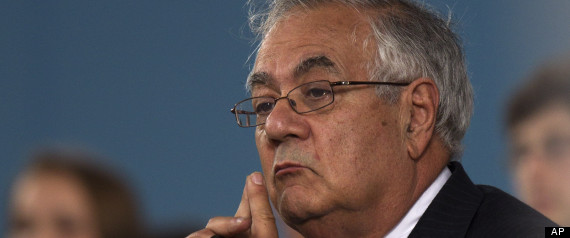
Barney Frank
The Huffington Post | By Nick Wing Posted: 12/03/2012 11:20 am EST Updated: 12/03/2012 11:20 am EST
Outgoing Rep. Barney Frank (D-Mass.) recently spoke with the Washington Post's Ed O'Keefe about the process of becoming the first openly gay congressional lawmaker to voluntarily announce his sexuality.
Frank told O'Keefe that he'd let a few of his House colleagues know in candid settings years before actually deciding to inform his superiors and come out publicly in 1987. The Massachusetts Democrat met with then-Speaker of the House Tip O'Neill (D-Mass.) in 1986 amid rumors about his homosexuality. Frank told O'Neill that he was gay.
According to Frank, O'Neill disappointedly suggested that it would prevent him from becoming "the first Jewish speaker," before telling his staff that Frank might soon be "coming out of the room." O'Neill's aides clarified that the proper vernacular was "coming out of the closet."
Frank also discussed his coming out in a recent interview with Massachusetts' WBUR, admitting that he'd regretted not making the announcement earlier. According to Frank, the 1983 gay sex scandal uncovered between then-Massachusetts Rep. Gerry Studds and a congressional page had put him in a difficult spot.
"I wanted a little dust to settle because we represented adjacent districts in southeastern Massachusetts and it just would have been too much a source of comment," Frank told WBUR. "You know, 'What's going on, is there something in the water in Bristol County, Mass.?'"
Frank, who married his longtime partner earlier this year in Massachusetts, recently spoke to Salon about the big 2012 victories for LGBT equality both in terms of newly elected representatives and state ballot initiatives regarding same-sex marriage.
"I'd say within 10 years, we will have pretty much won this fight for equality," he said. "Only if we keep fighting, though, not if we ease up!"
-
Janee Harteau Becomes Minneapolis' First Female, Openly Gay Police Chiefposted in LGBT News
Minneapolis made history last week by appointing the city's first-ever female police chief who also happens to be openly gay.
Janeé Harteau, a 25-year veteran of the force, won unanimous approval from the City Council Nov. 30 to become the city's police chief, Minnesota Public Radio reports. She will reportedly be sworn in Dec. 4.
"I want to thank her for her willingness to step forward for what is absolutely the toughest job in the city," Mayor R.T. Rybak is quoted by Minneapolis Star Tribute as having said at the council vote.
As for the significance of becoming the city's first female, openly gay police chief, Harteau noted, "I want people to see that you can achieve things despite some obstacles in your way. I stand on my merits on how I got here. I've been given tremendous opportunity."
LGBTQ Nation notes that Harteu and her partner Holly Keegel, who is also a Minneapolis police officer, are parents to a 13-year-old daughter.
-
Russian parliament to consider federal anti-gay lawposted in LGBT News
Nine regions have already passed legislation prohibiting promotion of 'homosexual propaganda' among minors
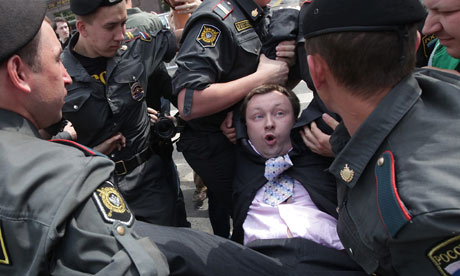
A man is detained at an unauthorised gay pride parade in Moscow in May.
Miriam Elder in Moscow
guardian.co.uk, Friday 30 November 2012 06.13 ESTRussia's parliament is to consider a nationwide ban on "homosexual propaganda", in a move activists likened to a Soviet-era crackdown.
Nine regions including St Petersburg have already passed legislation prohibiting the promotion of "homosexual propaganda" among minors. The Duma, Russia's parliament, will consider the nationwide ban on 19 December.
"This is an illegal policy of repression," said Igor Kochetkov, head of the LGBT Network, a Russian gay rights group. "It's a strange coincidence that this law will be looked at on 19 December, and on 17 December 1933, the Soviet authorities made sexual relations between men illegal. They argued that gays were alien to Soviet society. Now and then, we hear the same rhetoric."
Russia lifted its Soviet-era ban on homosexuality in 1993. Recent moves clamping down on gay rights have come amid a wider government push to promote traditional values and conservatism, often in concert with the Russian Orthodox church.
Last week Milan tore up a 45-year agreement to hold "sister city" status with St Petersburg, in protest at its law. All Out, a global gay rights group, has called on tourists to boycott the Russian city.
Kochetkov said the federal law followed "fascist logic". "It divides people into fully valued and half-valued people," he said. The LGBT Network had recorded a rise in the number of attacks against gay people and gay clubs in Russia since the regional laws had been passed, he said.
Proponents of the law argue that it is aimed at protecting children and promoting family values.
Last week a court in St Petersburg threw out a lawsuit against Madonna after a group of conservative activists tried to sue the pop star for $10.7m (£6.7m), arguing that she had broken the city's homosexual propaganda laws during a summer concert.
-
Supreme Court Takes No Action On Same-Sex Marriageposted in LGBT News
By Terry Baynes
WASHINGTON, Dec 3 (Reuters) - The U.S. Supreme Court on Monday remained silent about whether it will enter the legal fray over same-sex marriage a n d hear one of several pending appeals on the issue.
The court's nine justices met in private on Friday to consider whether to review challenges to the U.S. Defense of Marriage Act, which denies federal benefits to married same-sex couples, and to California's gay marriage ban, known as Proposition 8.
In an "orders list" issued early on Monday, the court made no mention of any of the same-sex marriage cases. Instead, it relisted those cases for further consideration at its weekly conference this Friday. The justices sometimes hold especially complex cases for a future conference if they want more time to consider a course of action.
Thirty-one of the 50 states have passed constitutional amendments banning gay marriage while Washington, D.C., and nine states have legalized it, three of them in November elections.
At issue is the 1996 Defense of Marriage Act, or DOMA, which only recognizes marriages between a man and a woman. Gay men and lesbians have challenged a part of the law that prevents them from receiving federal benefits that heterosexual couples receive.
Even in states where same-sex marriage is legal, the couples do not qualify for a host of federal benefits because of DOMA.
The court also is considering whether to review a challenge to California's ban on same-sex marriage. The California case, Hollingsworth v. Perry, had sought marriage equality for gays and lesbians under the U.S. Constitution.
The 9th Circuit Court of Appeals in February found the California gay marriage ban unconstitutional but it ruled narrowly in a way that only affected the one state and not the rest of the country, finding that the state could not take away the right to same-sex marriage after previously allowing it.
The justices meet at regular weekly sessions to decide which cases to add to their calendar. They vote in order of seniority, and while it takes five of the nine for a majority decision in a dispute, it takes only four votes to add a case to the agenda and schedule oral arguments.
Video @ hXXp://www.huffingtonpost.com/2012/12/03/supreme-court-same-sex-marriage_n_2231389.html






















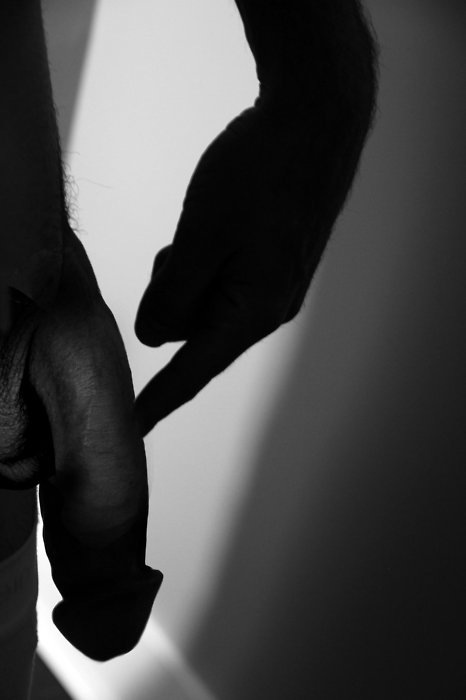







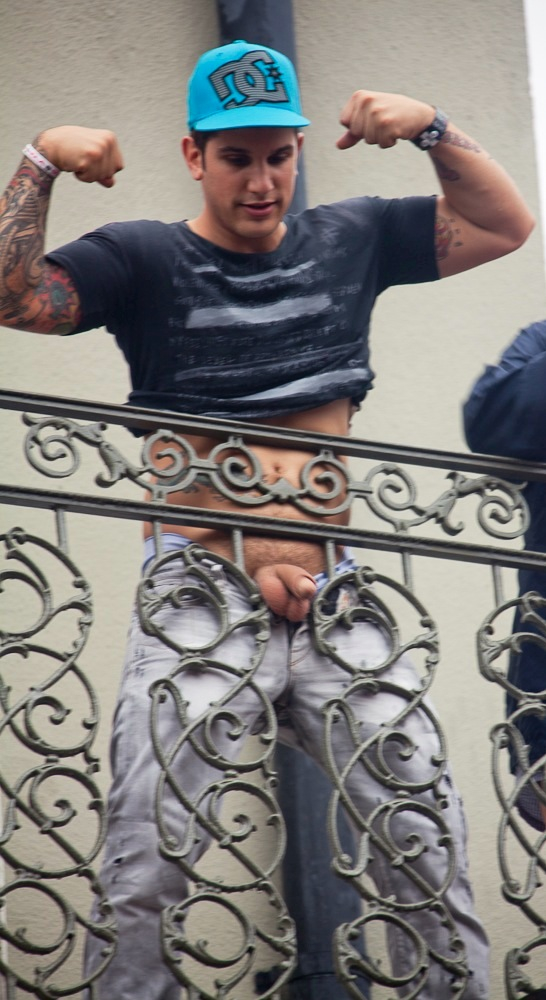


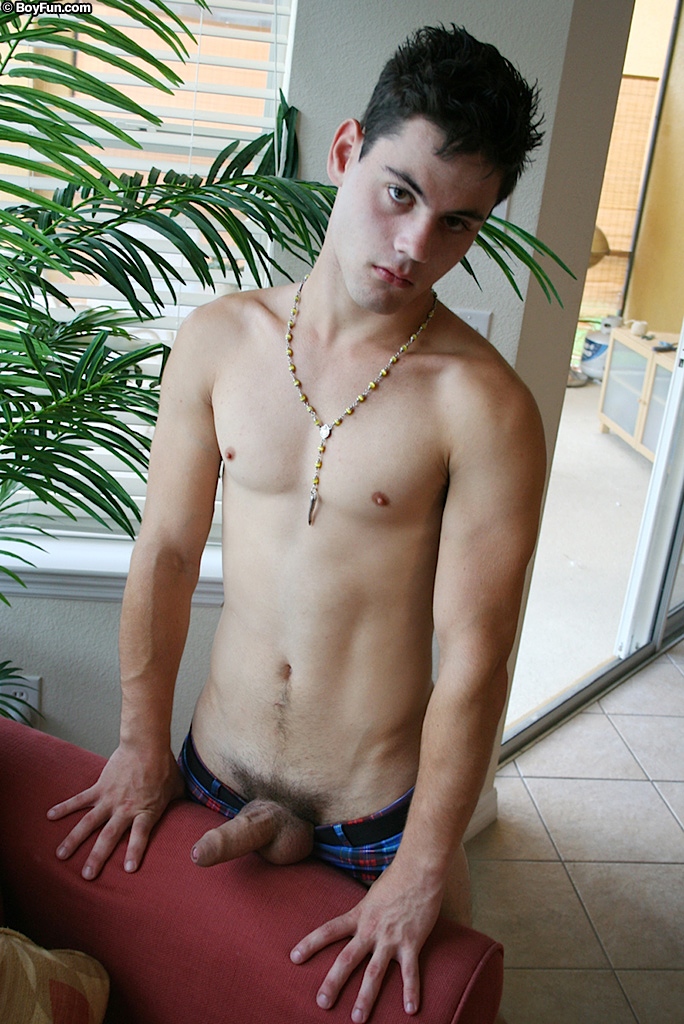
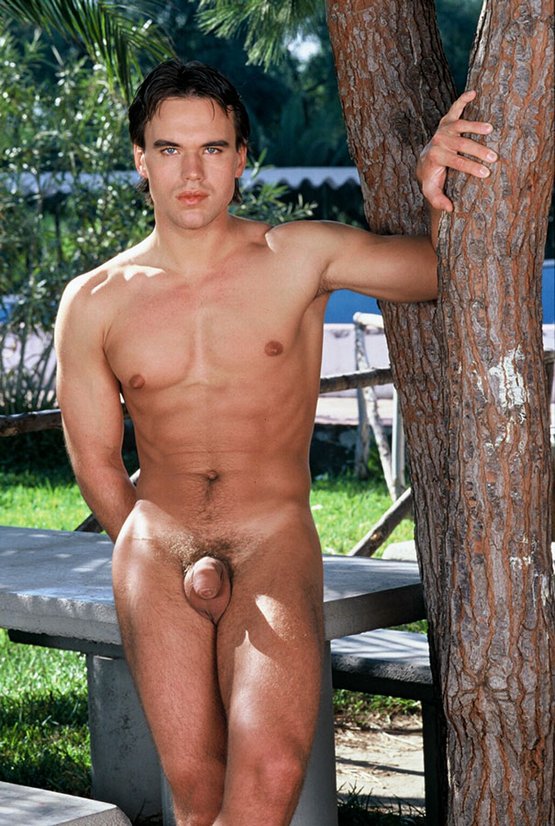









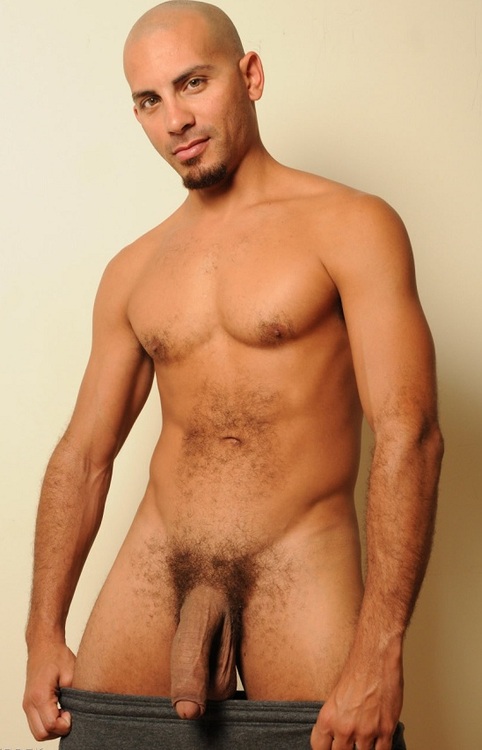






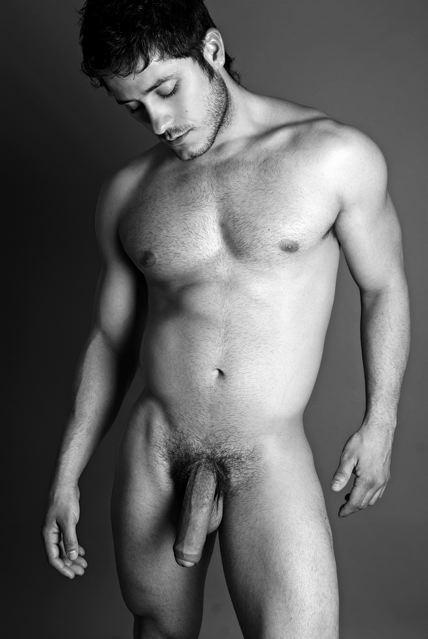
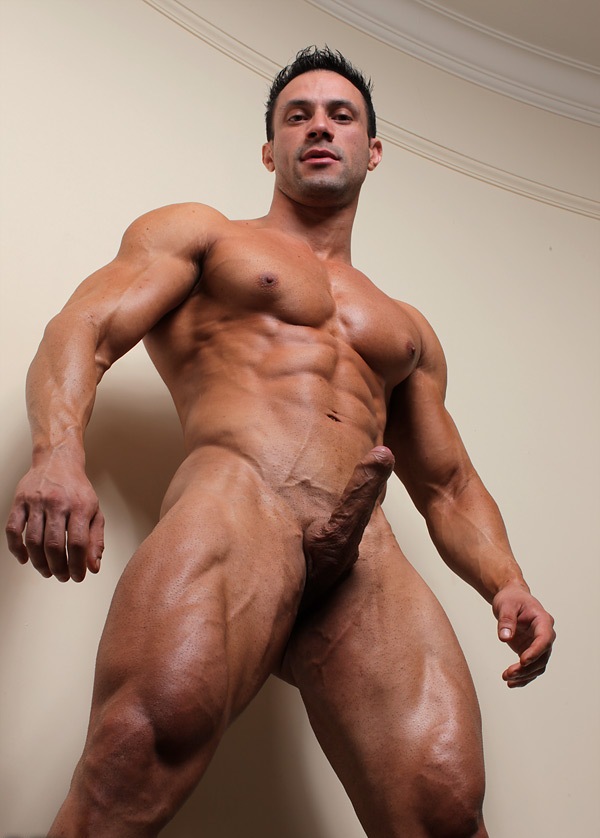




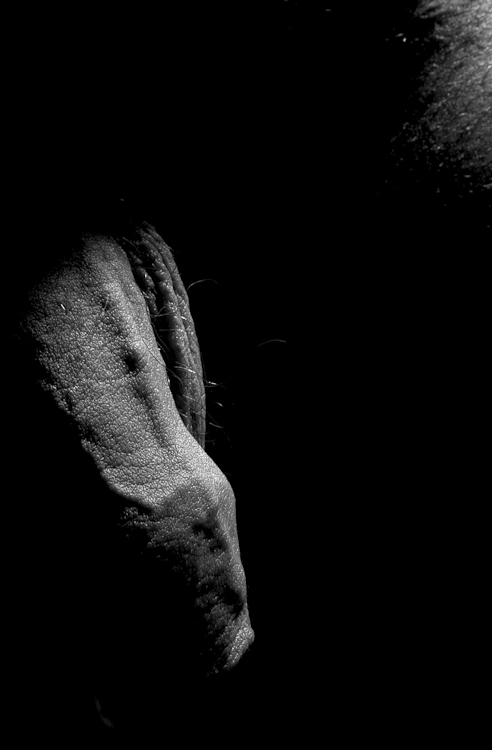




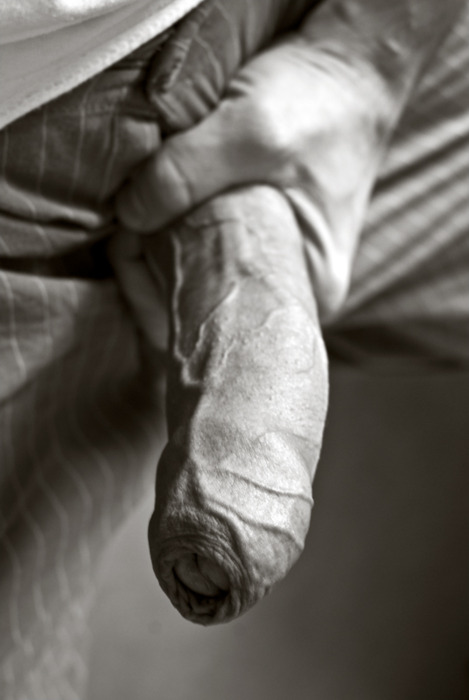
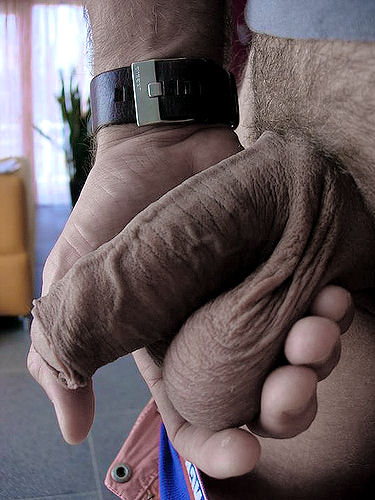



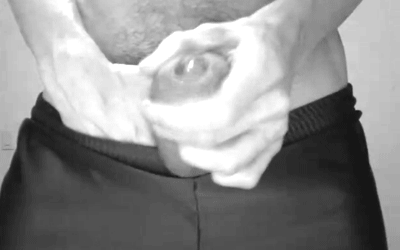


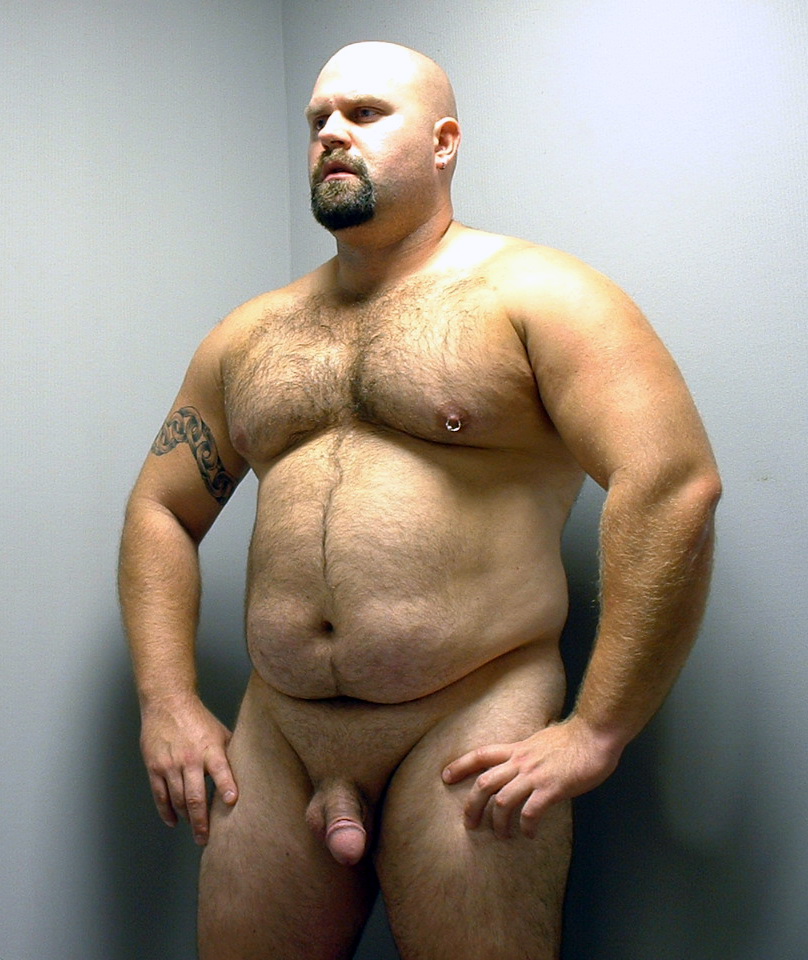






.jpg)


